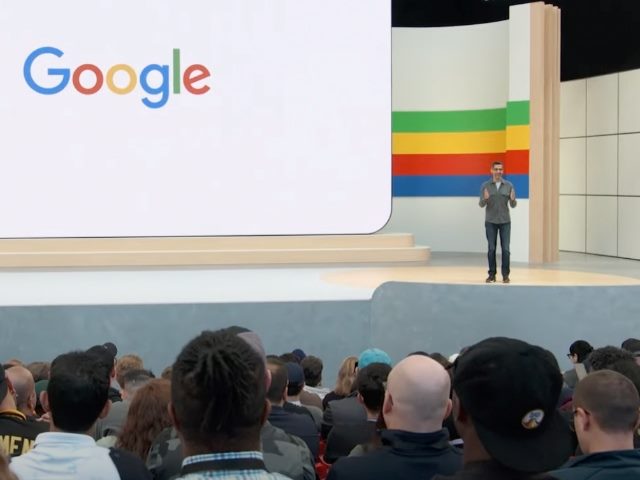The Gist
- Enhanced AI data handling. Gemini transforms BigQuery into a dynamic AI platform, boosting analytics and modeling.
- Cost-efficient data queries. Gemini introduces cost-saving features like materialized views, enhancing performance.
- Streamlined collaborative analytics. BigQuery's Data Canvas and AI tools facilitate easier, efficient data projects.
Google has been on a tear integrating its AI model Gemini into its cloud products and services, as showcased at this year’s Google I/O event.
One significant AI-driven transformation for marketers is the introduction of Gemini in BigQuery's features. BigQuery, a Google cloud-based service, is a columnar data warehouse that combines outsourced data and programming languages to manage data storage and queries.
BigQuery is evolving into more of an AI development platform. Through its integration and new features, Gemini in BigQuery allows users to manage remote AI models within the BigQuery environment.
The change signals more than just the spread of the AI-in-platform trend among major AI players. Data platforms are increasingly relying on AI to manage costly tasks associated with advanced analysis. Google BigQuery has transitioned from server-less storage to a data consolidation platform that marketers can use for their marketing operations needs.
What Is the Marketing Impact of Gemini in BigQuery?
Before we move on, here's a quick synopsis why this matters to marketers:
- Enhanced AI Analytics: Gemini transforms BigQuery into a dynamic AI platform, enabling deeper insights and more effective data-driven decisions.
- Cost-Efficient Data Management: Cost-saving features like materialized views improve performance and reduce operational expenses, optimizing marketing budgets.
- Streamlined Collaboration: BigQuery's Data Canvas and AI tools facilitate efficient, collaborative data projects, enhancing team productivity.
- Advanced Campaign Automation: AI-powered functionalities in BigQuery-Gemini improve the workflow for campaign planning and content creation, leading to more sophisticated marketing strategies.
- Scalable and Cutting-Edge Technology: Integration with Vertex AI ensures continuous advancements, providing marketers with a competitive edge in utilizing the latest AI technologies for data analysis.
Some Background on Google BigQuery
Since BigQuery’s introduction, Google has focused its features on data storage and as a querying canvas that supports SQL and machine learning functions through BigQuery ML. Over the past several months, Google has added data science-level features to BigQuery, increasing its data exploration capabilities and expanding its role to include more dynamic tasks suited for data modeling.
For example, BigQuery introduced DataFrames, a set of open-source Python libraries that implement pandas and scikit-learn APIs with server-side processing. Pandas and scikit are two important data management frameworks often necessary for creating data models in Python, ranging from regression models to machine learning and AI models.
Features like DataFrames make BigQuery a robust analytics platform, similar to how Looker became a data visualization platform to complement Google Analytics.
Related Article: Exporting Google Search Console Data to Looker and BigQuery for Better SEO Analysis
What Has Gemini in BigQuery Delivered?
Gemini's features in the BigQuery environment enhance the analytics capabilities by acting as an AI assistant within BigQuery. This allows the cloud solution to offer several AI-powered functionalities, similar to other development assistants like GitHub Copilot.
Thus, the BigQuery-Gemini features enhance the development workflow on tactics marketers need for planning campaign automation and content creation.
These key features include code assistance for SQL and Python. Gemini provides code generation, completion and explanations in its assistance features. The result is an automated and intuitive way to explore and understand data insights.
The code assistance integrates with BigQuery's interfaces, such as Data Canvas. Data Canvas is a graphical interface that allows marketers to use natural language to highlight data sources, conduct queries and transform visualizations in a directed acyclic graph (DAG), flagging insights throughout their data-to-insights journey.
Data Canvas is designed for effortless team collaboration, encouraging a range of analytics-oriented workflows in projects shared among multiple collaborators. Marketers can see its value in projects such as rapid cleaning of data from diverse origins and establishing Exploratory Data Analysis (EDA) that synthesizes key dataset features into model-ready data.
Related Article: Why Google Renamed Bard to Gemini
Opportunities for Managing Data Costs Through AI
Another aspect of Gemini's assistance is managing operational costs while querying warehoused data and conducting analysis workflows. Gemini in BigQuery can recommend materialized views, partitioning and clustering to reduce costs and improve performance.

When marketers use data warehouse platforms, charges are typically based on each query. BigQuery operates differently; users are charged for the data scanned, not for query runtime or the transfer from storage to the compute cluster. Therefore, much of the cost management in BigQuery involves managing the amount of data scanned. For example, after entering a query in the BigQuery Studio query editor, users can see an estimate during query execution in the top right corner of the screen.
What the BigQuery Evolution Means
The overall transformation of BigQuery mirrors that of Google’s visualization platform. Just as Looker complements analytic platforms like Google Analytics, BigQuery has evolved into a data lakehouse that unifies traditional data warehouse tasks with querying language features. This makes BigQuery well-suited for NoSQL and vector database features, which can be used with powerful AI tools and retrieval-augmented generation (RAG) construction for AI.
The Gemini improvements announced at this year’s Google I/O were not directly aimed at BigQuery. However, since many enhancements are coming to Vertex AI, which shares the same cloud platform as BigQuery, users can expect some of these improvements to eventually be incorporated into their workflow. Concepts like memory can help create even more relevant and efficient data processing and analysis.
The inclusion of AI promises significant scaling advantages for working with data efficiently. Through Gemini in BigQuery, teams will rely on BigQuery less as a data warehouse and more as a modeling hub for advanced analytics and AI. In sum, it means BigQuery users are also entering the Gemini era.
Learn how you can join our contributor community.
